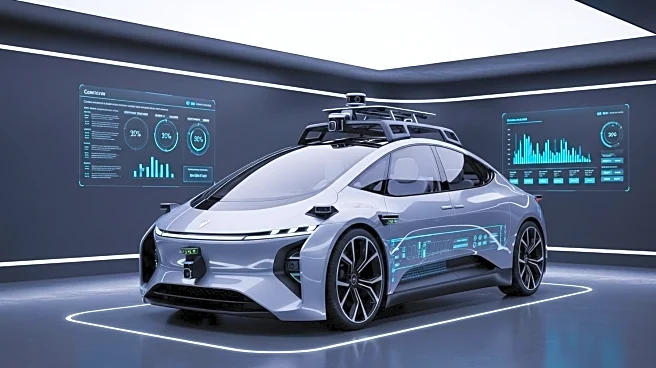What's Happening?
Tesla is facing a class action lawsuit filed by Levi & Korsinsky on behalf of shareholders who purchased Tesla stock between April 19, 2023, and June 22, 2025. The lawsuit alleges that Tesla made false and misleading statements about its autonomous driving technology, particularly concerning its Robotaxi service launched in Austin, Texas. The plaintiffs claim that Tesla's statements led to artificially inflated stock prices, and they are seeking compensation for financial losses. The lawsuit highlights concerns about the safety and legality of Tesla's autonomous vehicles, which reportedly violated traffic laws during their initial operation.
Why It's Important?
The lawsuit against Tesla underscores significant investor concerns regarding the company's autonomous driving technology and its impact on stock prices. If the allegations are proven, Tesla could face substantial financial liabilities and increased regulatory scrutiny, affecting its market position and investor confidence. The case also raises broader questions about the safety and reliability of autonomous vehicles, potentially influencing public policy and industry standards. Stakeholders, including investors and regulators, are closely monitoring the situation, as it could have far-reaching implications for the future of autonomous mobility.
What's Next?
Tesla may need to address the allegations in court, which could lead to a lengthy legal battle. The company might also face increased scrutiny from regulatory bodies like the U.S. National Highway Traffic Safety Administration, which has already contacted Tesla regarding the incidents. Depending on the outcome, Tesla's Robotaxi service could be subject to stricter regulations or operational changes. Investors and industry observers will be watching for Tesla's response and any potential impact on its stock performance and business strategy.
Beyond the Headlines
The lawsuit highlights ethical and legal challenges in the deployment of autonomous vehicles. It raises questions about corporate responsibility and transparency in communicating technological capabilities and risks to investors. The case could set a precedent for how companies disclose information about emerging technologies, influencing future legal and regulatory frameworks in the autonomous vehicle industry.









